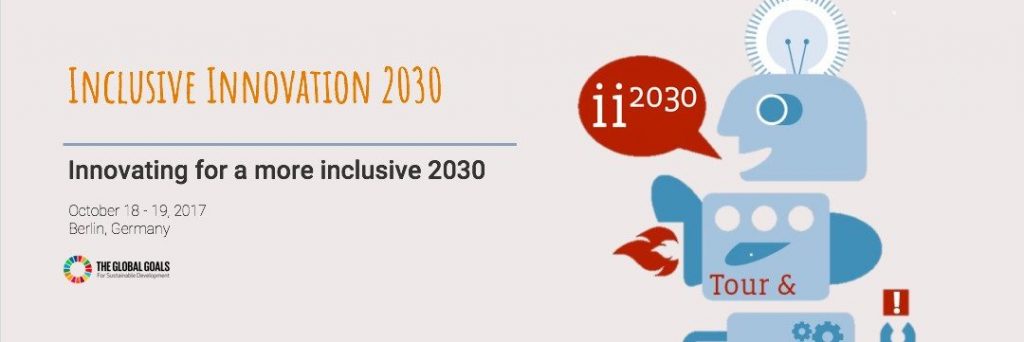Technology can save the world – or not
We live in an age of unprecedented technological advancement. Mobile connectivity makes communication and transactions even with far-away places a matter of seconds and cents. Artificial intelligence allows us to recognize patterns in large sets of data, and for machines to learn. Blockchain can create transparency and accountability independent of 3rd parties like government or certification agencies. Drones can reach the most remote regions and transport people, goods and information. These and other new technologies, and the synergies between them, will doubtlessly have a dramatic impact on humanity. Some people foresee a golden age of prosperity. More sceptical types fear that machines will become a danger to human existence.
We need to design the systems that will translate technology into human progress
Whichever way the impact of technology develops is no matter of fate, but of conscious design. Collective conscious design. We need to create the systems that will leverage technological advancements to address social challenges. These systems are made up of a diversity of actors that need to come together to align their complementary capacities behind a common purpose.
To give you one example: precision agriculture can increase yields for smallholder farmers, improve their access to markets, enhance food security, save inputs and protect natural resources. Through data, farmers can apply just the right kind of input to their fields, limiting input and maximizing output. Smallholders have to be part of the solution to feed the worlds fast growing population, and technology could be part of the answer. But to make it accessible to smallholders, they need to have access to data, knowledge and skills, inputs, markets and finance.
ii2030 is an initiative to co-create systems change
Inclusive innovation 2030 is an initiative by Endeva in collaboration with many partners to facilitate the collective conscious design of systems. In this first round, we will tackle five different challenges. In a design thinking process, we bring together just the right set of actors needed to make the change. For the challenge of making precision agriculture accessible to smallholders, corporates providing inputs and machinery will work together with social enterprises providing information and linkages to smallholders. Add development NGOs and donors, and we can design a roadmap for implementation. Our hypothesis is that after a phase of transition, we can reach a new equilibrium where different players will have a sustainable business model in catering to smallholder needs. In other tracks, we design systems to leverage artificial intelligence for remote diagnosis, and to collect data on low-income markets, and we discuss how to give entrepreneurs access to global markets using blockchain and how to make drones the transport vehicles for the last mile.
The proof is in the pilot
At the heart of the ii2030 process is a two-day workshop in Berlin on October 18 and 19, where selected participants will work together to design a roadmap to change. Starting September 25, we invite everyone interested to contribute to an open online discussion on iba.ventures. Here, we can start to develop a vision for each of the five challenges, and map out who is already doing relevant work. The real work, however, will only start after the event, when we need to implement the roadmap. Our ambition is to move from vision to pilot within a year.
2030 is almost here
The process is ambitious, no doubt, and it could fail. But we need to be audacious to achieve the SDGs. 2030 is already around the corner. Technology gives us the tools. Now we need the systems to put them to good work.
This blogpost was authored by Endeva Founders and Managing Directors Aline Menden and Christina Tewes-Gradl. More than a year ago, we dreamed up the ii2030 process, and we are excited to see it come to life soon.


